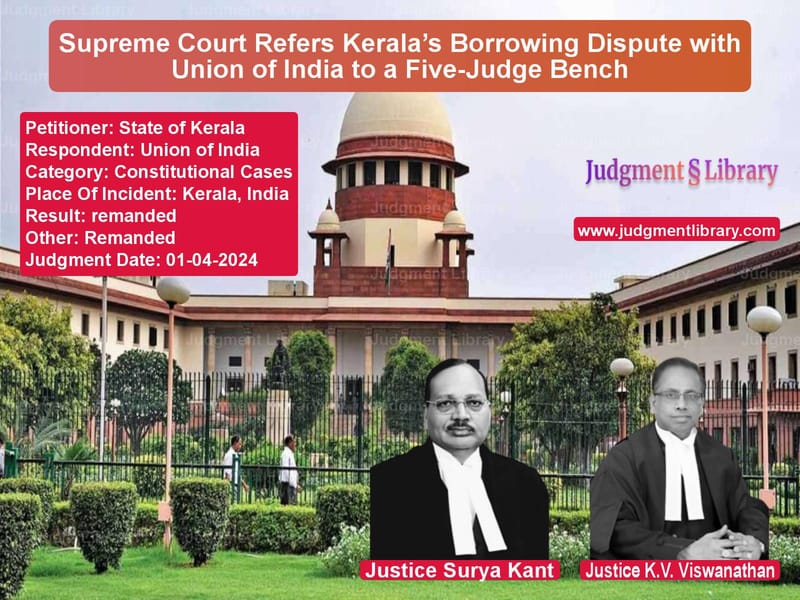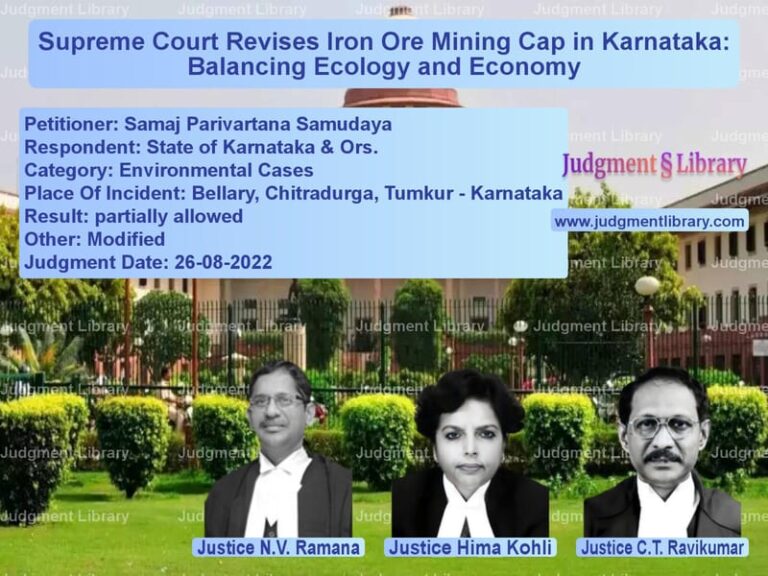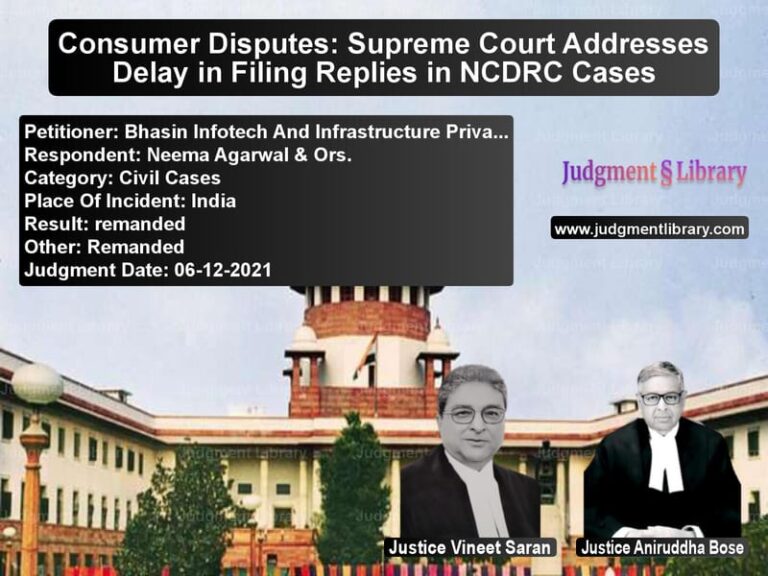Supreme Court Refers Kerala’s Borrowing Dispute with Union of India to a Five-Judge Bench
The Supreme Court of India has referred the State of Kerala vs. Union of India dispute to a five-judge bench for authoritative interpretation of Article 293 of the Constitution. The case raises crucial questions about the borrowing powers of state governments, the role of the central government in imposing fiscal restrictions, and the principles of federalism in financial governance.
Background of the Case
The State of Kerala filed an original suit under Article 131 of the Constitution, challenging certain financial restrictions imposed by the Union of India. The state argued that these restrictions violated its constitutional right to borrow funds for managing its finances. The dispute primarily centers around three key government actions:
- Amendment Act No. 13 of 2018: This amendment to the Fiscal Responsibility and Budget Management Act, 2003, mandates that the total debt of the Central and State governments must not exceed 60% of the Gross Domestic Product (GDP) by 2024-25.
- Net Borrowing Ceiling (Letter dated 27.03.2023): The Union of India imposed a borrowing limit of 3% of Kerala’s projected Gross State Domestic Product (GSDP), capping the state’s borrowings at INR 32,442 crores for the financial year 2023-24.
- Borrowing Approval (Letter dated 11.08.2023): The Union granted Kerala permission to raise INR 1,330 crores in open market borrowings, with a total approved limit of INR 21,852 crores for the financial year.
Legal Issues Considered
The Supreme Court identified multiple constitutional questions that require authoritative interpretation:
- Does Article 293 grant states an enforceable right to borrow?
- To what extent can the Union government regulate a state’s borrowing?
- Can the borrowing by State-Owned Enterprises and liabilities from the Public Account be included under the borrowing limit?
- Does fiscal decentralization form an essential part of Indian federalism?
- Can the Union government impose borrowing ceilings without consulting states?
Arguments by the Plaintiff (State of Kerala)
- The Union government’s restrictions on borrowing exceed its powers under Article 293.
- The borrowing limits prevent Kerala from meeting its financial obligations, including salaries, pensions, and welfare programs.
- Kerala has under-utilized its borrowing limits from previous years, amounting to INR 24,434 crores, which should now be made available.
- The restrictions violate the principles of federalism by unilaterally imposing financial constraints on a state.
- The state’s debt levels comply with the Domar model, meaning its economic growth rate exceeds the interest rates on its debt, making its borrowing sustainable.
Arguments by the Defendant (Union of India)
- Public finance is a national issue, and the central government has the authority to regulate state borrowing.
- State-Owned Enterprises and Public Account borrowings must be included in the borrowing limits to prevent states from bypassing fiscal discipline.
- Kerala’s financial crisis is due to fiscal mismanagement, not borrowing restrictions.
- The state’s borrowing from previous years exceeded its limits, requiring adjustments against future borrowing capacity.
- Excessive borrowing by states can destabilize national macroeconomic stability and impact India’s international credit ratings.
Supreme Court’s Judgment
The Supreme Court determined that the case raises significant constitutional issues and referred it to a five-judge bench.
1. Constitutional Questions Must Be Addressed
- Since Article 293 has never been authoritatively interpreted by the Court, the matter requires detailed examination.
- The Court will determine whether borrowing restrictions imposed by the Union violate states’ financial autonomy.
2. No Immediate Relief for Kerala
- Kerala sought interim relief to restore its borrowing ability and allow immediate borrowing of INR 26,226 crores.
- The Court ruled that granting such relief could have irreversible consequences on national fiscal policy.
- “If the state succeeds in the final judgment, it can still manage its finances; however, if we grant relief now and later reject the suit, the consequences on the national economy may be severe,” the Court observed.
3. Federalism and Fiscal Autonomy
- The Court recognized that fiscal decentralization is a crucial aspect of Indian federalism.
- “The question of whether states have an absolute right to borrow without central regulation strikes at the core of federal financial relations,” the judgment noted.
4. Judicial Review of Fiscal Policy
- The Court will examine whether the Union’s borrowing restrictions can be challenged on the grounds of arbitrariness under Article 14.
- It will also assess whether states must be consulted before imposing borrowing ceilings.
5. Timeline for Final Decision
- The Supreme Court directed the Chief Justice of India to constitute a five-judge bench to decide on the matter.
- The case will now proceed for full arguments before the larger bench.
Legal Implications of the Judgment
This ruling has far-reaching consequences for state finances and federal governance:
- Clarification on Borrowing Powers: The decision will set a precedent on whether states have unrestricted rights to borrow or if central oversight is justified.
- Federalism vs. Financial Control: The case will test the limits of federal principles in financial matters.
- Impact on Other States: Other states with high fiscal deficits may be affected by the ruling.
Conclusion
The Supreme Court’s decision to refer Kerala’s borrowing dispute to a five-judge bench highlights the constitutional importance of the issue. The ruling will shape future financial relations between the Union and states, determining the extent of fiscal autonomy available to state governments.
Read also: https://judgmentlibrary.com/supreme-court-directs-immediate-disclosure-of-electoral-bond-details/
Petitioner Name: State of Kerala.Respondent Name: Union of India.Judgment By: Justice Surya Kant, Justice K.V. Viswanathan.Place Of Incident: Kerala, India.Judgment Date: 01-04-2024.
Don’t miss out on the full details! Download the complete judgment in PDF format below and gain valuable insights instantly!
Download Judgment: state-of-kerala-vs-union-of-india-supreme-court-of-india-judgment-dated-01-04-2024.pdf
Directly Download Judgment: Directly download this Judgment
See all petitions in Legislative Powers
See all petitions in Public Interest Litigation
See all petitions in Separation of Powers
See all petitions in Judgment by Surya Kant
See all petitions in Judgment by K.V. Viswanathan
See all petitions in Remanded
See all petitions in Remanded
See all petitions in supreme court of India judgments April 2024
See all petitions in 2024 judgments
See all posts in Constitutional Cases Category
See all allowed petitions in Constitutional Cases Category
See all Dismissed petitions in Constitutional Cases Category
See all partially allowed petitions in Constitutional Cases Category







